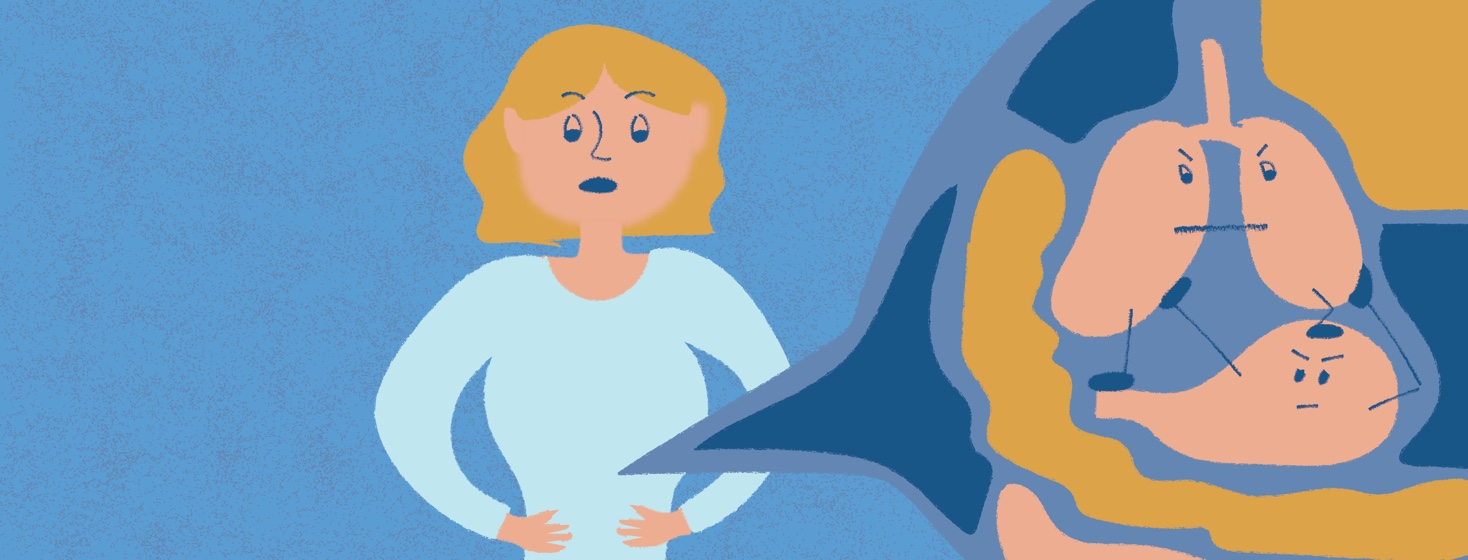Effects of Bloat on COPD
Have you noticed that the effects of 'bloat' don’t normally bother you in morning or afternoons? My symptoms of bloat and COPD were traceable. I was OK in the morning and afternoon. It made sense, really. I eat very little in the morning and prefer sweeter foods so I have my bananas and oranges then, along with a coffee or two. My bloat gets worse as the day goes on into the evening hours. When I have become more tired and have consumed my biggest meal of the day. In the beginning, I was blindsided by the uncomfortable effects of bloat with COPD. It felt like my breathing was becoming labored, when in fact it is a lack of room in my abdominal cavity to accommodate my expanding lungs when I have a full belly.
Experiencing bloating with COPD
Upon being discharged from the hospital, I ordered up a roast of beef dinner complete with potatoes, gravy, broccoli, and Yorkshire pudding. I called it delicious. After dinner was done and the table cleared, I began to feel my breathing was suddenly coming much harder and it was impossible to take in a deep breath. My abdomen felt crowded and tight. It was as if a balloon sat right in the middle of my stomach.
My problem was portion control and type of food
When I left the hospital, I realized that I had two problems. My first problem was with portion sizes per meal. The second problem was having control over when to stop eating. Simply put, I ate too much of the wrong stuff. I needed to learn to slow down and take in good fuels.
Everything we (choose to) consume (should) have a purpose
Nutrition is a huge part of managing COPD and shortness of breath. Filling our bodies with high calorie, high carbohydrates like candies and sugary or deep fried foods promote bloating. Bloating makes it harder to catch our breath. It's a simple fact.
Potassium and magnesium, along with antibiotics, are the first administered upon arrival to the hospital. I always make a note to consume those minerals on a daily basis. Bananas, pomegranates, and melons are just three of many fruits that are full of potassium. Potassium aids our heart, often referred to as a 'potassium sodium pump.' It helps our heart to keep its rhythm.
Vegetables like carrots, broccoli, and spinach are full of bone saving magnesium. So good baked with a touch of olive oil!
Protein, like that found in eggs, cheese, and lean meats are another major source of building important muscle mass. Those muscles that help our body to hold up our ailing lungs.
Look for a list of fruits and veggies that are exciting and find new ways to consume. Keep a list of what you can and can not tolerate until you find what suits you.
Decreasing your dietary intake robs us of energy unless our fuel or food intake is full of protein and essential vitamins. Asking your doctor to see a nutritionist will help with healthy choices.
Smaller portions and eating more meals in a day
This doesn’t mean eating more; it means spreading your meals out and having smaller portions more often. It means breaking each meal into two sittings and eating every 2 hours. All meals can be broken down into 2 servings by keeping the dessert-like fruits, salads, or yogurt and waiting another two hours to consume. Timing also plays a big part in the management of bloat. Having your biggest meal in the middle of the day may help contain bloat as you exercise to work off calories. Ensuring that everything we consume helps our bodies in a healthy way and managing consumption portions helps in the fight against bloat.
Editor’s Note: We are extremely saddened to say that on January 7th, 2024, Barbara Moore passed away. Barbara’s advocacy efforts and writing continue to reach many. She will be deeply missed.

Join the conversation